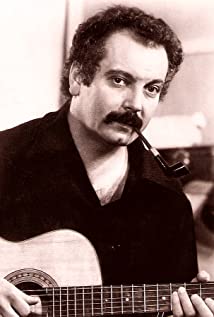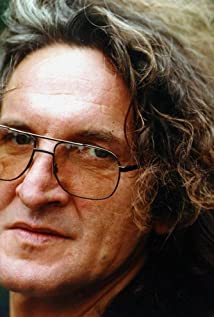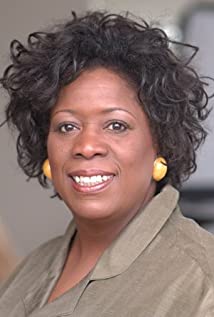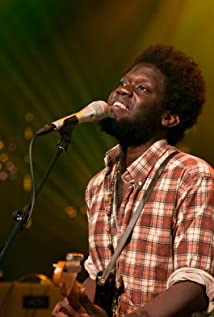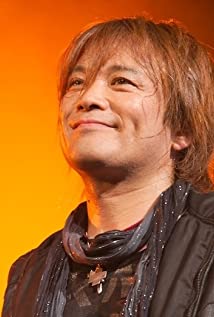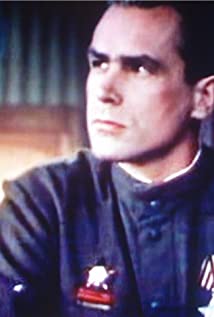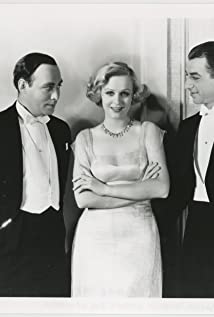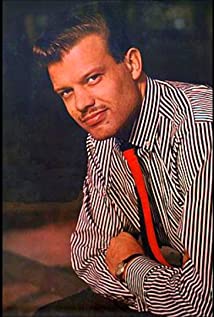Martin Luther King was born on January 15, 1929 in Atlanta, Georgia, United States, is Soundtrack, Composer. Martin Luther King Jr. was born on January 15, 1929, in Atlanta, Georgia. He was the son of Alberta Christine (Williams), a schoolteacher, and Martin Luther King Sr., a pastor of the Ebenezer Baptist Church in Atlanta. For Martin the civil rights movement began one summer in 1935 when he was six years old. Two of his friends did not show up to play ball with him and Martin decided to go looking for them. When he went to one of the boys' house, their mother met him at the front door and told him in a rude tone that her son would not be coming out to play with him that day or any other day because they were white and he was black. Years later, Martin admitted that those cruel words altered the direction of his life. As a teenager, Martin went through school with great distinction. He skipped ninth and 12th grades, and excelled on the violin and as as a public speaker. One evening after taking top prize in a debate tournament, he and his teacher were riding home on the bus discussing the event when the driver ordered them to give up their seats for two white passengers who had just boarded. Martin was infuriated as he recalled, "I intended to stay right in my seat and protest," but his teacher convinced him to obey the law and they stood for the remainder of the 90-mile trip. "That night will never leave my memory as long as I live. It was the angriest I had ever been in my life. Never before, or afterward, can I remember myself being so angry," he later recalled.Martin entered Morehouse College, his father's alma mater, when he was 15 with the intention of becoming a doctor or lawyer. After graduating from Morehouse at the age of 19, he decided to enter Crozer Theological Seminary in Chester, Pennsylvania. This private nondenominational college had only 100 students at the time, and Martin was one of six black students. This was the first time that he had lived in a community that was mostly white. He won the highest class ranking and a $1,200 fellowship for graduate school. In 1951 he entered Boston University School of Theology to to pursue his Ph.D. While at Crozer Martin had attended a lecture by Howard University President Mordecai Johnson, who spoke about Mohandas K. Gandhi, India's spiritual leader whose nonviolent protests helped to free his country from British rule, and that gave Martin the basis for positive change. It was here that he met and married his wife Coretta Scott King, who was a soprano studying at the New England Conservatory of Music. In 1954 Martin accepted a call to the Dexter Avenue Baptist Church in Montgomery, Alabama, to be its pastor. Despite Coretta's warning that it would not be safe for them in Alabama, the poorest and most racist state in the US, Martin insisted that they move there. Many local black ministers attended Martin's first sermon at the church, among them the Rev. Ralph Abernathy, who congratulated him on his speech. The two became fast friends and often discussed life in general and the challenges of desegregation in particular. Then an incident changed Martin's life forever.On the cold winter night of December 1, 1955, Rosa Parks, a 42-year-old black seamstress who worked in a downtown Montgomery department store, boarded a bus for home and sat in the back with the other black passengers. A few stops later, she was ordered to give up her seat to a white passenger who just boarded. She repeatedly refused, prompting the driver to call the police, who arrested her. In response to Mrs. Parks' courage, the town's black leaders formed the Montgomery Improvement Association and elected Martin as its leader. The first goal of the MIA was to boycott the city's bus system until public transportation laws were changed. The strike was long, bitter and violent, but eventually the city's white merchants began to complain that their businesses were suffering because of the strike, and the city responded by filing charges against Martin. While in court to appeal the charges, he learned that the U.S. Supreme Court had affirmed the decision by the Alabama Supreme Court that the local laws requiring segregation on buses were unconstitutional. The first civil rights battle was won, but for Martin it was the first of many more difficult ones. On November 29, 1959, he offered his resignation to the members of the Dexter Avenue Baptist Church, as several months earlier he had been elected leader of a new organization called the Southern Christian Leadership Conference (SCLC). He moved his family to Atlanta and began to establish a regional network of nonviolent organizations.In April 1961 he coordinated the SCLC and other civil-rights organizations to take two busloads of white and black passengers through the South on a "freedom ride" for publicity reasons. In Virgina and North and South Carolina there were no incidents, but in Anniston, Alabama, the ride became a rolling horror when one bus was burned and its passengers beaten by an angry racist white mob. In Birmingham, angry mobs--with some policemen joining them--greeted the bus with more violence, which was broken up when state police intervened and stopped the chaos. The violence shook Martin and he decided to abandon the freedom rides before someone was killed, but the riders insisted they complete the ride to Montgomery, where they where greeted with more violence. In January 1963 Martin arrived in Birmingham with Ralph Abernathy to organize a freedom march aimed to end segregation. Despite an injunction issued by city authorities against the gathering, the protesters marched and were attacked by the police. Three months later another march was planned with the intent to "turn the other cheek" in response to the violence by the city's police force. As the marchers reached downtown Birmgingham, the police attacked the crowd with high-pressure fire hoses and attack dogs. This time, however, the incident was witnessed across the entire country, as many network TV crews were there and broadcasting live footage of unarmed marchers being blasted to the ground by high-pressure hoses and others being bitten and mauled by snarling attack dogs, and it sparked a national outrage.The next day, more marchers repeated the walk and more policemen attacked with fire hoses and police dogs, leading to a total of 1,200 arrests. On the third day, Martin organized another march to the city jail. This time, when the marchers approached the police, none of them moved and some even let the marchers through to continue their march. The nonviolent strategy had worked--the strikes and boycotts were cutting deeply into the city merchants' revenues, and they called for negotiations and agreed with local black leaders to integrate lunch counters, fitting rooms, restrooms and drinking fountains within 90 days. Martin was then called for a rally in Washington, DC, near the Lincoln Memorial on August 28, 1963. Nearly 200,000 people stood in the intense heat listening to the speeches by the members and supporters of the NACCP. By the time Martin was called as the day's final speaker, the crowd was hot and tired. As he approached the podium, with his papers containing his prepared speech, he suddenly put them aside and decided to speak from the heart. He spoke of freedoms for blacks achieved and not yet achieved. He then spoke the words that echo throughout the world to this day: "I say to you today, my friends, that in spite of the difficulties and frustrations of the moment I still have a dream. It is a dream deeply rooted in the American dream. I have a dream that one day this nation will rise up and live out the true meaning of its creed. 'We hold these truths to be self-evident that all men are created equal.' I have that dream." By mid-October 1964 Martin had given 350 civil rights speeches and traveled 275,000 miles across the country and worked for 20 hours a day.While in an Atlanta hospital after collapsing from exhaustion, his wife brought in his room a telegram notifying him that he had won the Nobel Peace Prize. On April 1, 1968, Martin traveled to Memphis, Tennessee to meet with two of his advisers, James Bevel and Jesse Jackson, to discuss organizing a march to Washington in support of a strike by Memphis' city's sanitation workers. In the late afternoon of April 4, he stepped out onto the balcony of the Lorraine Motel where he was staying to speak with Andrew Young. As he saw Jackson and waved to him for a moment, a gunshot rang through the air and Martin Luther King Jr. was hit in the neck and fell dead from a sniper's bullet. He was dead, but the struggle that he started to continue to bring peace and end the racial conflict in the USA continues to this day.
Martin Luther King is a member of Soundtrack
Does Martin Luther King Dead or Alive?
As per our current Database, Martin Luther King has been died on April 4, 1968(1968-04-04) (aged 39)\nMemphis, Tennessee, U.S..
🎂 Martin Luther King - Age, Bio, Faces and Birthday
When Martin Luther King die, Martin Luther King was 39 years old.
| Popular As |
Martin Luther King |
| Occupation |
Soundtrack |
| Age |
39 years old |
| Zodiac Sign |
Aquarius |
| Born |
January 15, 1929 ( Atlanta, Georgia, United States) |
| Birthday |
January 15 |
| Town/City |
Atlanta, Georgia, United States |
| Nationality |
United States |
🌙 Zodiac
Martin Luther King’s zodiac sign is Aquarius. According to astrologers, the presence of Aries always marks the beginning of something energetic and turbulent. They are continuously looking for dynamic, speed and competition, always being the first in everything - from work to social gatherings. Thanks to its ruling planet Mars and the fact it belongs to the element of Fire (just like Leo and Sagittarius), Aries is one of the most active zodiac signs. It is in their nature to take action, sometimes before they think about it well.
🌙 Chinese Zodiac Signs
Martin Luther King was born in the Year of the Snake. Those born under the Chinese Zodiac sign of the Snake are seductive, gregarious, introverted, generous, charming, good with money, analytical, insecure, jealous, slightly dangerous, smart, they rely on gut feelings, are hard-working and intelligent. Compatible with Rooster or Ox.
Some Martin Luther King images
Famous Quotes:
I have almost reached the regrettable conclusion that the Negro's great stumbling block in his stride toward freedom is not the White Citizen's Councilor or the Ku Klux Klanner, but the white moderate, who is more devoted to "order" than to justice; who prefers a negative peace which is the absence of tension to a positive peace which is the presence of justice; who constantly says: "I agree with you in the goal you seek, but I cannot agree with your methods of direct action"; who paternalistic-ally believes he can set the timetable for another man's freedom; who lives by a mythical concept of time and who constantly advises the Negro to wait for a "more convenient season."
Awards and nominations:
King was awarded at least fifty honorary degrees from colleges and universities. On October 14, 1964, King became the youngest winner of the Nobel Peace Prize, which was awarded to him for leading nonviolent resistance to racial prejudice in the U.S. In 1965, he was awarded the American Liberties Medallion by the American Jewish Committee for his "exceptional advancement of the principles of human liberty." In his acceptance remarks, King said, "Freedom is one thing. You have it all or you are not free."
In 1957, he was awarded the Spingarn Medal from the NAACP. Two years later, he won the Anisfield-Wolf Book Award for his book Stride Toward Freedom: The Montgomery Story. In 1966, the Planned Parenthood Federation of America awarded King the Margaret Sanger Award for "his courageous resistance to bigotry and his lifelong dedication to the advancement of social justice and human dignity." Also in 1966, King was elected as a fellow of the American Academy of Arts and Sciences. In November 1967 he made a 24-hour trip to the United Kingdom to receive an honorary degree from Newcastle University, being the first African-American to be so honoured by Newcastle. In a moving impromptu acceptance speech, he said
In 1971 he was posthumously awarded a Grammy Award for Best Spoken Word Album for his Why I Oppose the War in Vietnam.
In 1977, the Presidential Medal of Freedom was posthumously awarded to King by President Jimmy Carter. The citation read:
King and his wife were also awarded the Congressional Gold Medal in 2004.
King was second in Gallup's List of Most Widely Admired People of the 20th Century. In 1963, he was named Time Person of the Year, and in 2000, he was voted sixth in an online "Person of the Century" poll by the same magazine. King placed third in the Greatest American contest conducted by the Discovery Channel and AOL.
On April 20, 2016, Treasury Secretary Jacob Lew announced that the $5, $10, and $20 bills would all undergo redesign prior to 2020. Lew said that while Lincoln would remain on the obverse of the $5 bill, the reverse would be redesigned to depict various historical events that had occurred at the Lincoln Memorial. Among the planned designs are images from King's "I Have a Dream" speech and the 1939 concert by opera singer Marian Anderson.
Biography/Timeline
1929
King was born on January 15, 1929, in Atlanta, Georgia, to the Reverend Martin Luther King, Sr. and Alberta Williams King. King's legal name at birth was Michael King, and his father was also born Michael King, but the elder King changed both his and his son's names around 1934. The elder King would later state that "Michael" was a mistake by the attending physician to his son's birth, and the younger King's birth certificate was altered to read "Martin Luther King Jr." in 1957. King's parents were both African-American, and he also had Irish ancestry through his paternal great-grandfather.
1939
King was a middle child, between older sister Christine King Farris and younger brother A.D. King. King sang with his church choir at the 1939 Atlanta premiere of the movie Gone with the Wind, and he enjoyed singing and music. His mother was an accomplished organist and choir leader who took him to various churches to sing, and he received attention for singing "I Want to Be More and More Like Jesus". King later became a member of the junior choir in his church.
1940
Veteran African-American civil rights Activist Bayard Rustin was King's first regular advisor on nonviolence. King was also advised by the white Activists Harris Wofford and Glenn Smiley. Rustin and Smiley came from the Christian pacifist tradition, and Wofford and Rustin both studied Gandhi's teachings. Rustin had applied nonviolence with the Journey of Reconciliation campaign in the 1940s, and Wofford had been promoting Gandhism to Southern blacks since the early 1950s. King had initially known little about Gandhi and rarely used the term "nonviolence" during his early years of activism in the early 1950s. King initially believed in and practiced self-defense, even obtaining guns in his household as a means of defense against possible attackers. The pacifists guided King by showing him the alternative of nonviolent resistance, arguing that this would be a better means to accomplish his goals of civil rights than self-defense. King then vowed to no longer personally use arms.
1942
Growing up in Atlanta, King attended Booker T. Washington High School. He became known for his public speaking ability and was part of the school's debate team. When King was thirteen in 1942, he became the youngest assistant manager of a newspaper delivery station for the Atlanta Journal. During his junior year, he won first prize in an oratorical contest sponsored by the Negro Elks Club in Dublin, Georgia. On the ride home to Atlanta by bus, he and his Teacher were ordered by the driver to stand so that white passengers could sit down. King initially refused but complied after his Teacher told him that he would be breaking the law if he did not submit. During this incident, King said that he was "the angriest I have ever been in my life." An outstanding student, he skipped both the ninth and the twelfth grades of high school.
1948
In 1948, King graduated at age 19 from Morehouse with a B.A. in sociology. He then enrolled in Crozer Theological Seminary in Chester, Pennsylvania, from which he graduated with a B.Div. degree in 1951. King's father fully supported his decision to continue his education.
1950
The attempt to prove that King was a communist was related to the feeling of many segregationists that blacks in the South were happy with their lot but had been stirred up by "communists" and "outside agitators." However, the 1950s and '60s civil rights movement arose from activism within the black community dating back to before World War I. King said that "the Negro revolution is a genuine revolution, born from the same womb that produces all massive social upheavals—the womb of intolerable conditions and unendurable situations."
1952
The "Beyond Vietnam" speech reflected King's evolving political advocacy in his later years, which paralleled the teachings of the progressive Highlander Research and Education Center, with which he was affiliated. King began to speak of the need for fundamental changes in the political and economic life of the nation, and more frequently expressed his opposition to the war and his Desire to see a redistribution of resources to correct racial and economic injustice. He guarded his language in public to avoid being linked to communism by his enemies, but in private he sometimes spoke of his support for democratic socialism. In a 1952 letter to Coretta Scott, he said: "I imagine you already know that I am much more socialistic in my economic theory than capitalistic ..." In one speech, he stated that "something is wrong with capitalism" and claimed, "There must be a better distribution of wealth, and maybe America must move toward a democratic socialism." King had read Marx while at Morehouse, but while he rejected "traditional capitalism", he also rejected communism because of its "materialistic interpretation of history" that denied religion, its "ethical relativism", and its "political totalitarianism."
1953
King married Coretta Scott on June 18, 1953, on the lawn of her parents' house in her hometown of Heiberger, Alabama. They became the parents of four children: Yolanda King (1955–2007), Martin Luther King III (b. 1957), Dexter Scott King (b. 1961), and Bernice King (b. 1963). During their marriage, King limited Coretta's role in the civil rights movement, expecting her to be a housewife and mother.
1954
At age 25 in 1954, King was called as pastor of the Dexter Avenue Baptist Church in Montgomery, Alabama.
1955
Nine months later on December 1, 1955, a similar incident occurred when Rosa Parks was arrested for refusing to give up her seat on a city bus. The two incidents led to the Montgomery bus boycott, which was urged and planned by Nixon and led by King. The boycott lasted for 385 days, and the situation became so tense that King's house was bombed. King was arrested during this campaign, which concluded with a United States District Court ruling in Browder v. Gayle that ended racial segregation on all Montgomery public buses. King's role in the bus boycott transformed him into a national figure and the best-known spokesman of the civil rights movement.
1956
Although King never publicly supported a political party or candidate for President, in a letter to a civil rights supporter in October 1956 he said that he was undecided as to whether he would vote for Adlai Stevenson or Dwight Eisenhower, but that "In the past I always voted the Democratic ticket." In his autobiography, King says that in 1960 he privately voted for Democratic candidate John F. Kennedy: "I felt that Kennedy would make the best President. I never came out with an endorsement. My father did, but I never made one." King adds that he likely would have made an exception to his non-endorsement policy for a second Kennedy term, saying "Had President Kennedy lived, I would probably have endorsed him in 1964." In 1964, King urged his supporters "and all people of goodwill" to vote against Republican Senator Barry Goldwater for President, saying that his election "would be a tragedy, and certainly suicidal almost, for the nation and the world." King supported the ideals of democratic socialism, although he was reluctant to speak directly of this support due to the anti-communist sentiment being projected throughout the United States at the time, and the association of socialism with communism. King believed that capitalism could not adequately provide the basic necessities of many American people, particularly the African-American community.
1957
In 1957, he was awarded the Spingarn Medal from the NAACP. Two years later, he won the Anisfield-Wolf Book Award for his book Stride Toward Freedom: The Montgomery Story. In 1966, the Planned Parenthood Federation of America awarded King the Margaret Sanger Award for "his courageous resistance to bigotry and his lifelong dedication to the advancement of social justice and human dignity." Also in 1966, King was elected as a fellow of the American Academy of Arts and Sciences. In November 1967 he made a 24-hour trip to the United Kingdom to receive an honorary degree from Newcastle University, being the first African-American to be so honoured by Newcastle. In a moving impromptu acceptance speech, he said
1958
On September 20, 1958, King was signing copies of his book Stride Toward Freedom in Blumstein's department store in Harlem when he narrowly escaped death. Izola Curry—a mentally ill black woman who thought that King was conspiring against her with communists—stabbed him in the chest with a letter opener. King underwent emergency surgery with three doctors: Aubre de Lambert Maynard, Emil Naclerio and John W. V. Cordice; he remained hospitalized for several weeks. Curry was later found mentally incompetent to stand trial. In 1959, he published a short book called The Measure of A Man, which contained his sermons "What is Man?" and "The Dimensions of a Complete Life." The sermons argued for man's need for God's love and criticized the racial injustices of Western civilization.
1959
King was inspired by Mahatma Gandhi and his success with nonviolent activism, and as a theology student, King described Gandhi as being one of the "individuals who greatly reveal the working of the Spirit of God". King had "for a long time ... wanted to take a trip to India." With assistance from Harris Wofford, the American Friends Service Committee, and other supporters, he was able to fund the journey in April 1959. The trip to India affected King, deepening his understanding of nonviolent resistance and his commitment to America's struggle for civil rights. In a radio address made during his final evening in India, King reflected, "Since being in India, I am more convinced than ever before that the method of nonviolent resistance is the most potent weapon available to oppressed people in their struggle for justice and human dignity."
1960
Another influence for King's nonviolent method was Henry David Thoreau's essay On Civil Disobedience and its theme of refusing to cooperate with an evil system. He also was greatly influenced by the works of Protestant Theologians Reinhold Niebuhr and Paul Tillich, and said that Walter Rauschenbusch's Christianity and the Social Crisis left an "indelible imprint" on his thinking by giving him a theological grounding for his social concerns. King was moved by Rauschenbusch's vision of Christians spreading social unrest in "perpetual but friendly conflict" with the state, simultaneously critiquing it and calling it to act as an instrument of justice. He was apparently unaware of the American tradition of Christian pacifism exemplified by Adin Ballou and William Lloyd Garrison King frequently referred to Jesus' Sermon on the Mount as central for his work. King also sometimes used the concept of "agape" (brotherly Christian love). However, after 1960, he ceased employing it in his writings.
1961
The Albany Movement was a desegregation coalition formed in Albany, Georgia, in November 1961. In December, King and the SCLC became involved. The movement mobilized thousands of citizens for a broad-front nonviolent attack on every aspect of segregation within the city and attracted nationwide attention. When King first visited on December 15, 1961, he "had planned to stay a day or so and return home after giving counsel." The following day he was swept up in a mass arrest of peaceful demonstrators, and he declined bail until the city made concessions. According to King, "that agreement was dishonored and violated by the city" after he left town.
1962
King returned in July 1962 and was given the option of forty-five days in jail or a $178 fine (equivalent to $1,400 in 2017); he chose jail. Three days into his sentence, Police Chief Laurie Pritchett discreetly arranged for King's fine to be paid and ordered his release. "We had witnessed persons being kicked off lunch counter stools ... ejected from churches ... and thrown into jail ... But for the first time, we witnessed being kicked out of jail." It was later acknowledged by the King Center that Billy Graham was the one who bailed King out of jail during this time.
1963
King was second in Gallup's List of Most Widely Admired People of the 20th Century. In 1963, he was named Time Person of the Year, and in 2000, he was voted sixth in an online "Person of the Century" poll by the same magazine. King placed third in the Greatest American contest conducted by the Discovery Channel and AOL.
1964
King was awarded at least fifty honorary degrees from colleges and universities. On October 14, 1964, King became the youngest winner of the Nobel Peace Prize, which was awarded to him for leading nonviolent resistance to racial prejudice in the U.S. In 1965, he was awarded the American Liberties Medallion by the American Jewish Committee for his "exceptional advancement of the principles of human liberty." In his acceptance remarks, King said, "Freedom is one thing. You have it all or you are not free."
1965
King stated that black Americans, as well as other disadvantaged Americans, should be compensated for historical wrongs. In an interview conducted for Playboy in 1965, he said that granting black Americans only equality could not realistically close the economic gap between them and whites. King said that he did not seek a full restitution of wages lost to slavery, which he believed impossible, but proposed a government compensatory program of $50 billion over ten years to all disadvantaged groups.
1966
On being awarded the Planned Parenthood Federation of America's Margaret Sanger Award on May 5, 1966, King said:
1967
In the United Kingdom, The Northumbria and Newcastle Universities Martin Luther King Peace Committee exists to honor King's legacy, as represented by his final visit to the UK to receive an honorary degree from Newcastle University in 1967. The Peace Committee operates out of the chaplaincies of the city's two universities, Northumbria and Newcastle, both of which remain centres for the study of Martin Luther King and the US civil rights movement. Inspired by King's vision, it undertakes a range of activities across the UK as it seeks to "build cultures of peace."
1968
On February 4, 1968, at the Ebenezer Baptist Church, in speaking about how he wished to be remembered after his death, King stated:
1969
Two months after King's death, James Earl Ray—who was on the loose from a previous prison escape—was captured at London Heathrow Airport while trying to leave England on a false Canadian passport. He was using the alias Ramon George Sneyd on his way to white-ruled Rhodesia. Ray was quickly extradited to Tennessee and charged with King's murder. He confessed to the assassination on March 10, 1969, though he recanted this confession three days later. On the advice of his attorney Percy Foreman, Ray pleaded guilty to avoid a trial conviction and thus the possibility of receiving the death penalty. He was sentenced to a 99-year prison term. Ray later claimed a man he met in Montreal, Quebec, with the alias "Raoul" was involved and that the assassination was the result of a conspiracy. He spent the remainder of his life attempting, unsuccessfully, to withdraw his guilty plea and secure the trial he never had. Ray died in 1998 at age 70.
1971
In 1971 he was posthumously awarded a Grammy Award for Best Spoken Word Album for his Why I Oppose the War in Vietnam.
1975
FBI Director J. Edgar Hoover personally ordered surveillance of King, with the intent to undermine his power as a civil rights leader. According to the Church Committee, a 1975 investigation by the U.S. Congress, "From December 1963 until his death in 1968, Martin Luther King Jr. was the target of an intensive campaign by the Federal Bureau of Investigation to 'neutralize' him as an effective civil rights leader."
1977
In 1977, the Presidential Medal of Freedom was posthumously awarded to King by President Jimmy Carter. The citation read:
1983
Beginning in 1971, cities such as St. Louis, Missouri, and states established annual holidays to honor King. At the White House Rose Garden on November 2, 1983, President Ronald Reagan signed a bill creating a federal holiday to honor King. Observed for the first time on January 20, 1986, it is called Martin Luther King Jr. Day. Following President George H. W. Bush's 1992 proclamation, the holiday is observed on the third Monday of January each year, near the time of King's birthday. On January 17, 2000, for the first time, Martin Luther King Jr. Day was officially observed in all fifty U.S. states. Arizona (1992), New Hampshire (1999) and Utah (2000) were the last three states to recognize the holiday. Utah previously celebrated the holiday at the same time but under the name Human Rights Day.
1984
The original typewritten copy of the speech, including King's handwritten notes on it, was discovered in 1984 to be in the hands of George Raveling, the first African-American basketball coach of the University of Iowa. In 1963, Raveling, then 26, was standing near the podium, and immediately after the oration, impulsively asked King if he could have his copy of the speech. He got it.
1986
In his 1986 book Bearing the Cross, David Garrow wrote about a number of extramarital affairs, including one woman King saw almost daily. According to Garrow, "that relationship ... increasingly became the emotional centerpiece of King's life, but it did not eliminate the incidental couplings ... of King's travels." He alleged that King explained his extramarital affairs as "a form of anxiety reduction." Garrow asserted that King's supposed promiscuity caused him "painful and at times overwhelming guilt." King's wife Coretta appeared to have accepted his affairs with equanimity, saying once that "all that other Business just doesn't have a place in the very high level relationship we enjoyed." Shortly after Bearing the Cross was released, civil rights author Howell Raines gave the book a positive review but opined that Garrow's allegations about King's sex life were "sensational" and stated that Garrow was "amassing facts rather than analyzing them."
1989
In his 1989 autobiography And the Walls Came Tumbling Down, Ralph Abernathy stated that King had a "weakness for women", although they "all understood and believed in the biblical prohibition against sex outside of marriage. It was just that he had a particularly difficult time with that temptation." In a later interview, Abernathy said that he only wrote the term "womanizing", that he did not specifically say King had extramarital sex and that the infidelities King had were emotional rather than sexual. Abernathy criticized the media for sensationalizing the statements he wrote about King's affairs, such as the allegation that he admitted in his book that King had a sexual affair the night before he was assassinated. In his original wording, Abernathy had claimed he saw King coming out of his room with a lady when he awoke the next morning and later claimed that "he may have been in there discussing and debating and trying to get her to go along with the movement, I don't know."
1991
Decades later, an academic inquiry in October 1991 concluded that portions of his dissertation had been plagiarized and he had acted improperly. However, "[d]espite its finding, the committee said that 'no thought should be given to the revocation of Dr. King's doctoral degree,' an action that the panel said would serve no purpose." The committee also found that the dissertation still "makes an intelligent contribution to scholarship." A letter is now attached to the copy of King's dissertation held in the university library, noting that numerous passages were included without the appropriate quotations and citations of sources. Significant debate exists on how to interpret King's plagiarism.
1997
In 1997, King's son Dexter Scott King met with Ray, and publicly supported Ray's efforts to obtain a new trial.
2000
In 2000, the U.S. Department of Justice completed the investigation into Jowers' claims but did not find evidence to support allegations about conspiracy. The investigation report recommended no further investigation unless some new reliable facts are presented. A sister of Jowers admitted that he had fabricated the story so he could make $300,000 from selling the story, and she in turn corroborated his story in order to get some money to pay her income tax.
2002
In 2002, The New York Times reported that a church minister, Rev. Ronald Denton Wilson, claimed his father, Henry Clay Wilson—not James Earl Ray—assassinated King. He stated, "It wasn't a racist thing; he thought Martin Luther King was connected with communism, and he wanted to get him out of the way." Wilson provided no evidence to back up his claims.
2003
King researchers David Garrow and Gerald Posner disagreed with william F. Pepper's claims that the government killed King. In 2003, Pepper published a book about the long investigation and trial, as well as his representation of James Earl Ray in his bid for a trial, laying out the evidence and criticizing other accounts. King's friend and colleague, James Bevel, also disputed the argument that Ray acted alone, stating, "There is no way a ten-cent white boy could develop a plan to kill a million-dollar black man." In 2004, Jesse Jackson stated:
2004
King and his wife were also awarded the Congressional Gold Medal in 2004.
2006
King's wife Coretta Scott King followed in her husband's footsteps and was active in matters of social justice and civil rights until her death in 2006. The same year that Martin Luther King was assassinated, she established the King Center in Atlanta, Georgia, dedicated to preserving his legacy and the work of championing nonviolent conflict resolution and tolerance worldwide. Their son, Dexter King, serves as the center's chairman. Daughter Yolanda King, who died in 2007, was a motivational speaker, author and founder of Higher Ground Productions, an organization specializing in diversity training.
2008
Ray's lawyers maintained he was a scapegoat similar to the way that John F. Kennedy Assassin Lee Harvey Oswald is seen by conspiracy theorists. Supporters of this assertion said that Ray's confession was given under pressure and that he had been threatened with the death penalty. They admitted that Ray was a thief and burglar, but claimed that he had no record of committing violent crimes with a weapon. However, prison records in different U.S. cities have shown that he was incarcerated on numerous occasions for charges of armed robbery. In a 2008 interview with CNN, Jerry Ray, the younger brother of James Earl Ray, claimed that James was smart and was sometimes able to get away with armed robbery. Jerry Ray said that he had assisted his brother on one such robbery. "I never been with nobody as bold as he is," Jerry said. "He just walked in and put that gun on somebody, it was just like it's an everyday thing."
2013
The FBI distributed reports regarding such affairs to the executive branch, friendly reporters, potential coalition partners and funding sources of the SCLC, and King's family. The bureau also sent anonymous letters to King threatening to reveal information if he did not cease his civil rights work. The FBI–King suicide letter sent to King just before he received the Nobel Peace Prize read, in part:
2014
The letter was accompanied by a tape recording—excerpted from FBI wiretaps—of several of King's extramarital liaisons. King interpreted this package as an attempt to drive him to suicide, although william Sullivan, head of the Domestic Intelligence Division at the time, argued that it may have only been intended to "convince Dr. King to resign from the SCLC." King refused to give in to the FBI's threats.
2016
On April 20, 2016, Treasury Secretary Jacob Lew announced that the $5, $10, and $20 bills would all undergo redesign prior to 2020. Lew said that while Lincoln would remain on the obverse of the $5 bill, the reverse would be redesigned to depict various historical events that had occurred at the Lincoln Memorial. Among the planned designs are images from King's "I Have a Dream" speech and the 1939 concert by opera singer Marian Anderson.
2017
In 2017, Newcastle University unveiled a bronze statue of King to celebrate the 50th anniversary of his honorary doctorate ceremony. The Students Union also voted to rename their bar 'Luthers'.
Martin Luther King trend












